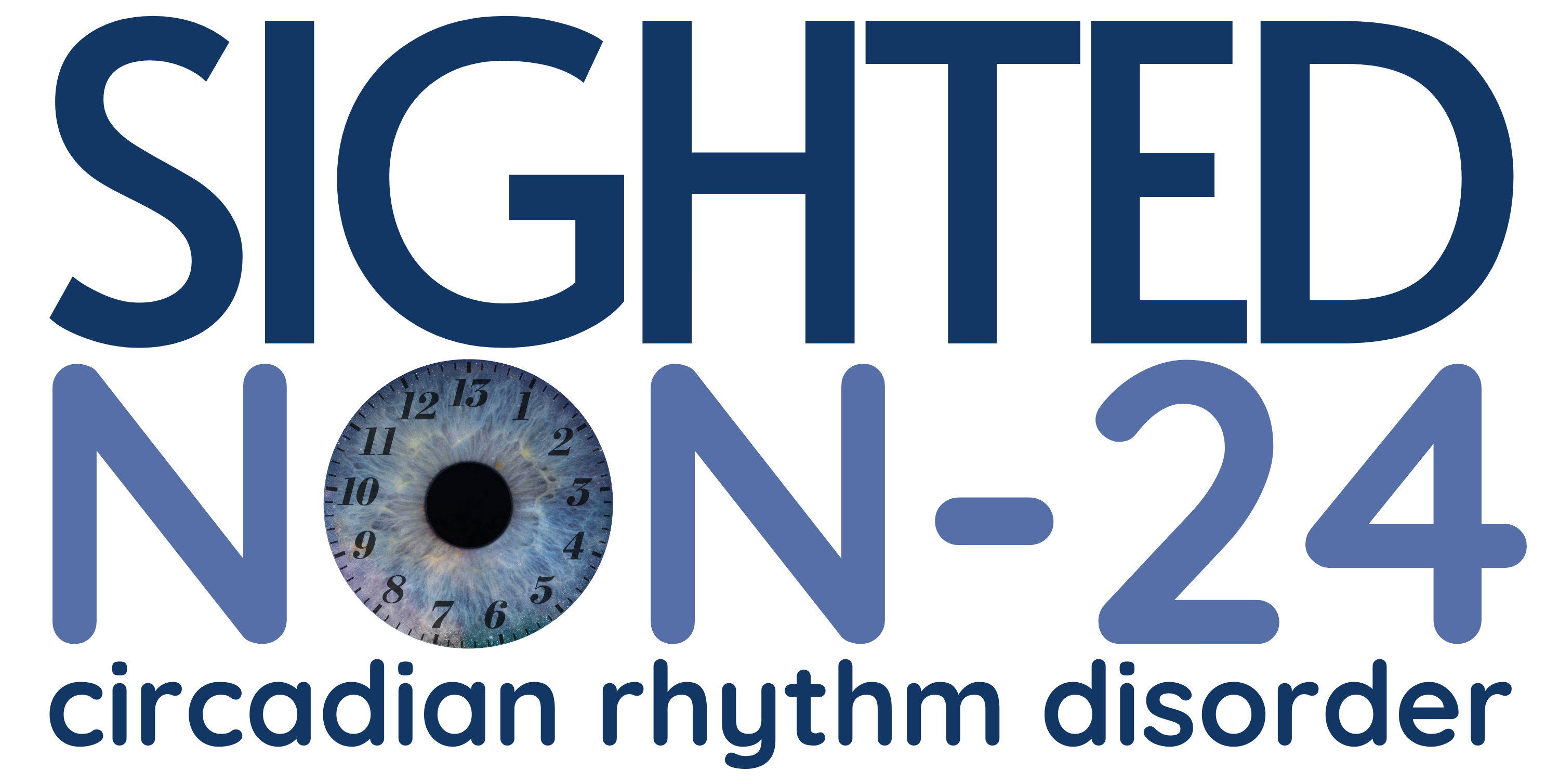The Struggle of Explaining Non-24 & How We Simplify It For You
Non-24 can be difficult to explain. Often, explaining how it affects our life is more important than the scientific function.
Put simply, people with Non-24 Circadian Rhythm Disorder (also called Non-24-Hour Sleep-Wake Disorder) have body clocks (Circadian Rhythms) that are NOT 24-hours. Usually, our days are longer. This means the amount of time we’re awake and the amount of time we need to sleep adds up to more than twenty-four hours. We struggle to wake up at the same time every day without feeling permanently jet-lagged, sleep deprived, and non-functional. See our FAQ page for more information.
So, we asked fellow Non-24 patients how they describe their disorder to new people.
“I’ve been recently diagnosed and, so far, after I explain Non-24, I haven’t been able to avoid people asking “have you tried vitamin D/melatonin/just going to bed at the same time?” I think using the term “neurological” or mentioning my neurologist helps.
I also have a thought experiment I use:
Imagine that every single day your work starts 1-2 hours earlier. So you start at 8am today, 6am tomorrow, 5am the next day, and so on. When do you sleep? Could you just go to bed earlier every night to compensate? Would you sleep at all when you’re working schedules like 10pm-6am? How do you plan things knowing your work could be 7-14 hours later next week and you always work an 8 hour shift?
Since I’m on a 25-26 hour rhythm, that’s how it feels for me to wake up at the same time: like waking up earlier and earlier every single day.”
– Hans Vohet

“My body doesn’t seem to respond to day/night light cues, and my circadian rhythm rotates around the clock. I usually sleep about 7-8 hours a day, with 17-18 hours awake, though my cycle is not completely predictable. I sleep fine when I follow my own clock, but get insomnia when I try to sleep early.
When I fight my Non-24 rhythm, I get physically ill with a fatigue buildup that feels like constant jet-lag crossed with a bad hangover. If I push it long enough, I lose the ability to wake up to alarms. When I follow my rhythm, I have fairly normal energy levels, wake up easily, and feel much better!
This disorder is common for blind people and much rarer for people with sight. No one knows for sure what causes sighted Non-24, but a lot of us started out as night owls. In college, I adopted a chaotic sleep schedule to compensate for being unable to wake up early. That may be what messed up my wiring, but I can’t say for certain. My bedtime has rotated involuntarily since around age 20. I resisted my pattern for a decade, until I physically couldn’t fight it anymore. No treatments have worked for me besides free-running.” – Anonymous Non-24 patient

“I try to emphasize the many functions of the circadian rhythm… that it’s not just sleep, that it governs EVERYTHING in the body and is very difficult to change. I gain an hour of jet lag/sleep an hour later every day. Or if they don’t need to know all that, just “I have a sleep disorder.” – Chava Sara Stone

“Depending on the situation, I usually say, ‘I have a circadian rhythm disorder called Non-24’ so that people are more likely to take me seriously than if I just say, ‘I have a sleep problem’ because it is much more serious than a sleepless night here and there. More generally, I usually describe Non-24 as, “a disorder that causes my sleep to shift forward every day. So, I can be waking up at 6AM and then going to bed at 6AM a week later. If I try to have a normal schedule with alarms, I get incredibly sleep deprived and cannot function. I’d end up bedridden, anyway. The difference between forcing my sleep to a ‘normal’ schedule and free-running is my productivity level and my ability to actually live if I sleep my Non-24 rhythm.”
– Liberty Ruth

Wrap-up: Non-24 patients must simplify, use metaphors, and sometimes show people their sleep log to explain their disorder. Being taken seriously by people is a struggle. Often, we run into people who think we can just force our sleep, but this is often due to people taking their Circadian Rhythm for granted. We recognize that typically, people do not realize how powerful the Circadian Rhythm is and how it keeps your body on a constant schedule. It works automatically, so to try and manipulate the Circadian Rhythm is almost impossible. If Circadian Rhythms were easy to manipulate, Circadian disorders would not be so rare and they would be easier to treat. There are many different ways patients explain their Non-24 disorder, but the common connection we have is struggling to explain how debilitating Non-24 is while still being understood.
Screenshots provided by Liberty Ruth unless otherwise noted.
